"Si mi pluma valiera tu pistola" (If my pen were worth
your gun)
|
"Si mi pluma valiera tu pistola" (If my pen were worth your
gun). Second International Writers Congress in Defence of
Culture (1937)
From 27th November 2007 to 20th January
2008. Muralla Room - Rector Peset Hall of Residence
SECOND INTERNATIONAL WRITERS CONGRESS IN DEFENCE OF CULTURE
(1937) (Valencia-Madrid-Barcelona-Paris, July 1937)
From
Tuesday to Saturday, from 10 to 13.30 and from 16 to 20 h.
Sunday, from 10 to 14 h.
|
|
|
|
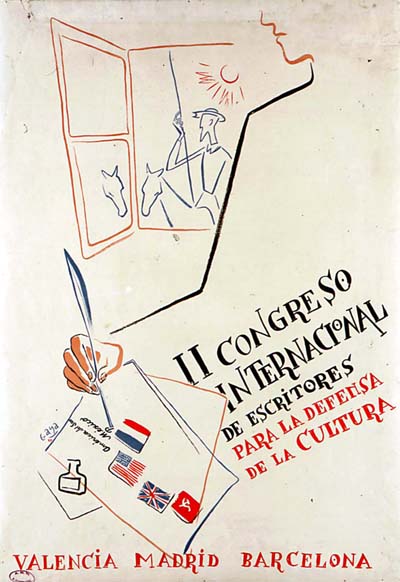 |
|
|
|
The creation of the Alliance of Writers
for the Defence of Culture (Alianza de Intelectuales
para la Defensa de la Cultura - AIDC) –the
international organisation of antifascist intellectuals-
was the practical outcome of the First International
Writers Congress in Defence of Culture, held in Paris in
June 1935. A year later, in June 1936, the extended
Secretariat of this international organisation met in
London, where the Spanish delegates (Ricardo Baeza and
José Bergamín) put Madrid up as a candidate venue for
the Second International Congress. The proposal was
approved by the Secretariat before the start of the
Civil War, at the beginning of November 1936, when
Franco's attack on Madrid had already started. Five
months later, in Paris, the International Secretariat
endorsed the decision made in London.
However, the moving of the Republican
government from Madrid to Valencia in November 1936
caused the Second Congress to be opened and held in the
latter city, the capital of the Republic at the time.
The Minister of Public Instruction and Fine Arts, the
communist Jesús Hernández, appointed three writers from
the Spanish Section -Juan Gil-Albert, Emilio Prados and
Arturo Serrano Plaja- organising secretaries. |
|
|
|
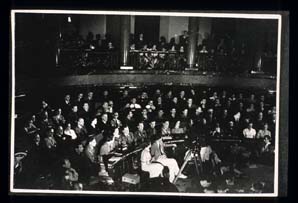 |
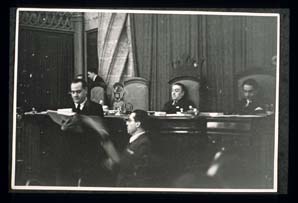 |
|
|
|
The congress was opened by the President
of the Republican government, Juan Negrín, on 4th
July 1937 at the conference room of Valencia’s City
Hall. Without a doubt, the congress was the most
spectacular cultural propaganda event organised by the
Ministry during the Spanish Civil War. With more than a
hundred antifascist writer participants from all over
the world, the conference also catered for sessions in
Madrid (on 5, 6, 7 and 8 July) and Barcelona (11 July),
and was finally closed in Paris (16, 17 July).
The Congress addressed general cultural
issues requiring collective intellectual reflection in a
context of relaxation and peace radically different from
that of a civil war. Under the historic circumstances of
the time, the Conference logically and inevitably became
an "act of opposition to fascist barbarity”, as Corpus
Barga put it, since “the congress, particularly in
Madrid, could be nothing but an act of war”. Far from
the situation of antifascist writers who remained in
their ivory towers or in a poetical daydream, the
delegates explored specific aid avenues for Republican
Spain and constantly condemned the non-intervention
policy implemented by western democracies. On the other
hand, the reconsideration of the social role of
literature, the commitment of writers, or the real power
of words as a specific weapon of intelligence were
heated issues collectively discussed by the delegates. |
|
|
|
 |
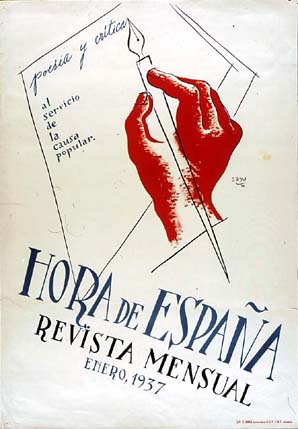 |
|
|
|
Intellectually speaking, standing up for
culture meant a new revolutionary humanism, a socialist
humanism that struggled to ensure human dignity and
peoples’ freedom. Therefore, in a Republican Spain that
fought international fascism, that type of defence also
implied defending the cultural nationalities of its
diverse peoples. The presence of a delegation from the
Valencian Country in an International Writers Congress
was genuinely a historical novelty that evidenced the
"normalisation" will of our political and cultural
"recovery" process in the years of the Second Republic. |
|
|
|
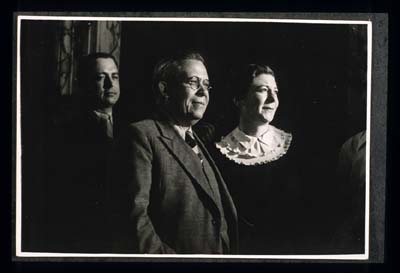 |
|
|
|
Apart from incidents like the
controversial exclusion of André Gide or the political
poverty or aesthetic shortage of some addresses
–logically impregnated with the passionate
‘temperatures’ at which work was done and the
consideration that foreign writers went through an
experience marked an exceptional event (a civil war),
nobody can deny the antifascist courage of the Second
Congress. Precisely because that was the reason behind
it: all those writers travelled to a country undergoing
a civil war in order to express the international
solidarity of intellectual antifascism with the Spanish
Republic.
Manuel
Aznar Soler
GEXEL-CEFID -
Universitat Autònoma de Barcelona |
|
|
|
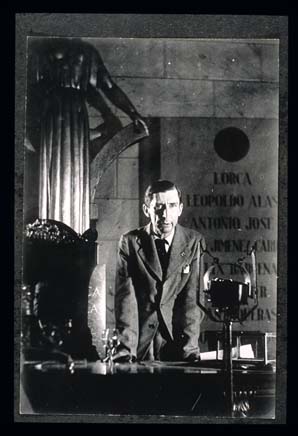 |
|
|
|
|